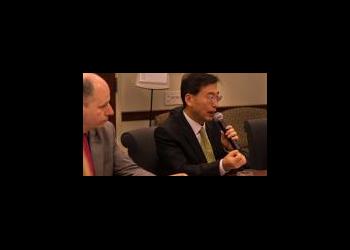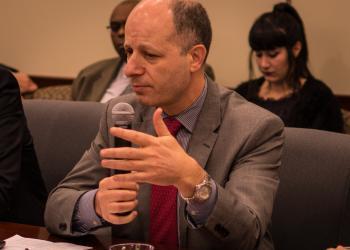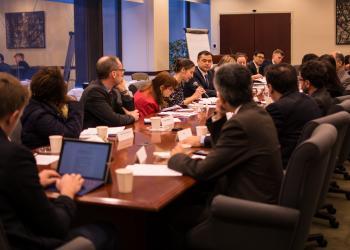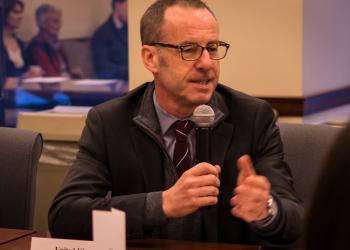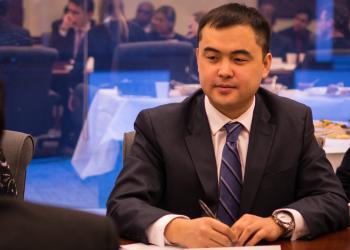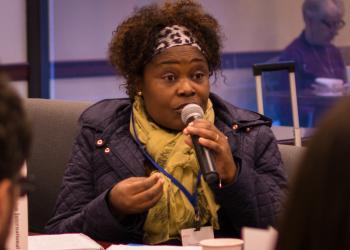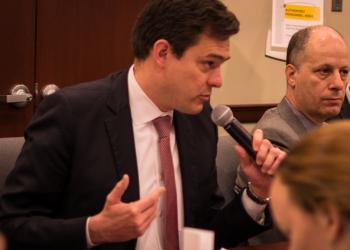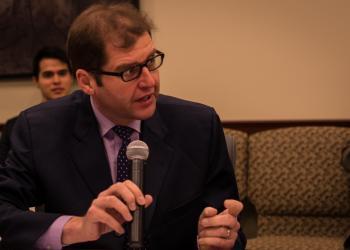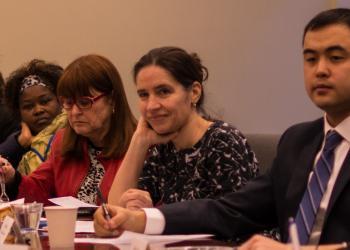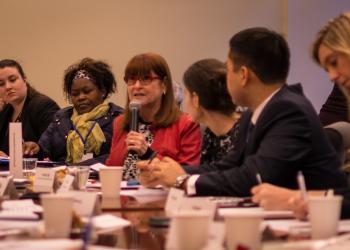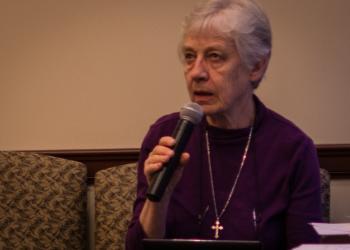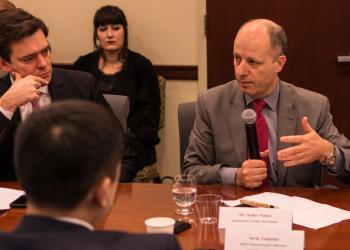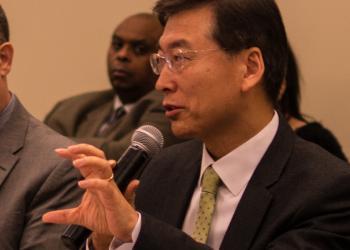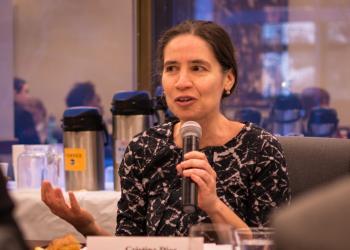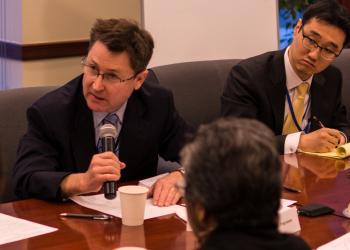To be successful, the SDGs will need to touch minds – and hearts
When they were first formulated in the early 2000s, the Millennium Development Goals were an unknown quantity, not only to the development community but to the public at large.
Today they are “recognized as the most successful anti-poverty campaign in history,” said Maher Nasser, director of Outreach Division of the UN Department of Public Information.
If the proposed Sustainable Development Goals (SDGs) are to achieve similar success, their objectives, methods and scope will need to be widely communicated.
This is true especially for the general public, who are the ultimate targets of their lofty aspirations, which in many ways are much more broad and transformative than the MDGs, since they address not only poverty but wider issues such as peace and the environment.
That challenge – the challenge of communicating the substance, vision and importance of the SDGs – was the subject of an informal breakfast meeting held 24 March 2015 at the offices of the Baha’i International Community as part of a long running effort to bring together diplomats, UN officials and civil society in a dialogue about the post-2015 development agenda.
The meeting featured keynote speakers: Mr. Nasser and Hahn Choonghee, the deputy permanent representative of the Republic of Korea to the UN.
Amb. Hahn said one key to successfully communicating the significance of the SDGs will be to touch not only the minds but also the “hearts” of the general public.
We have to find “very touching and inspiring ways of communicating,” he said, adding that one way to do that is to talk about those aspects of the SDGs that focus on inspirational qualities like human rights, inequality, and justice.
He stressed also that any communications effort must not be a monologue. “It is a dialogue, two way communication, rather than one way communication,” said Amb. Hahn.
“One aspect maybe we can talk about today is youth engagement,” he said. “Youth really are the future. And after 15 years, youth will be in charge.”
Mr. Nasser suggested that much has changed in the world of communications since the MDGs were formulated, citing specifically the expansion of the internet and the rise of social media.
“The world is much more connected,” he said. “About one-third of humanity has access to high speed internet, and even in those areas where there is low internet penetration, in the major urban centers the internet is also there.”
“Today, there are six billion cell phones and of those, two billion are actually smart phones.
“And interconnectivity and social media have not only revolutionized the way information is communicated but the way it is shared,” said Mr. Nasser.
He then described how, in the past, his department relied mainly on press releases and radio or television segments to get the news out. Today, he said, the UN uses Facebook, Instagram and Twitter, among other social media sites, along with special events tied to celebrities or popular culture, to ensure that its latest campaigns are widely shared around the world.
He added that youth are the most active users of social media. “Their role and the way they are paying attention to the discussion is very important – and they can actually participate,” he said.
Serik Tokbolat, a representative of the Baha’i International Community, said communicating the post-2015 agenda to the peoples of the world will be essential if full participation is to be achieved in its implementation.
“The full engagement of governments, all relevant stakeholders and civil society is vital,” said Mr. Tokbolat. “The need to reach out to all members of society, in particular the most vulnerable is crucial. Without knowledge of the agenda at all levels, full participation will always remain difficult.”
In the general off-the-record discussion that followed, participants made a number of points about the challenges of communicating the SDGs in any effort to mobilize and empower people and institutions.
One point, for example, was that many people lack trust in institutions and governments, because so many promises have been made that have not been delivered on. So it will be imperative to build trust.
Another point was that civil society and grassroots organizations are often in the best position to create that trust, partly by holding governments accountable.
The meeting was the 24th in a series of informal breakfast dialogues on the post-2015 agenda. Like previous meetings, it was co-sponsored by the BIC and International Movement ATD Fourth World.
Notes from the meeting can be read here.
